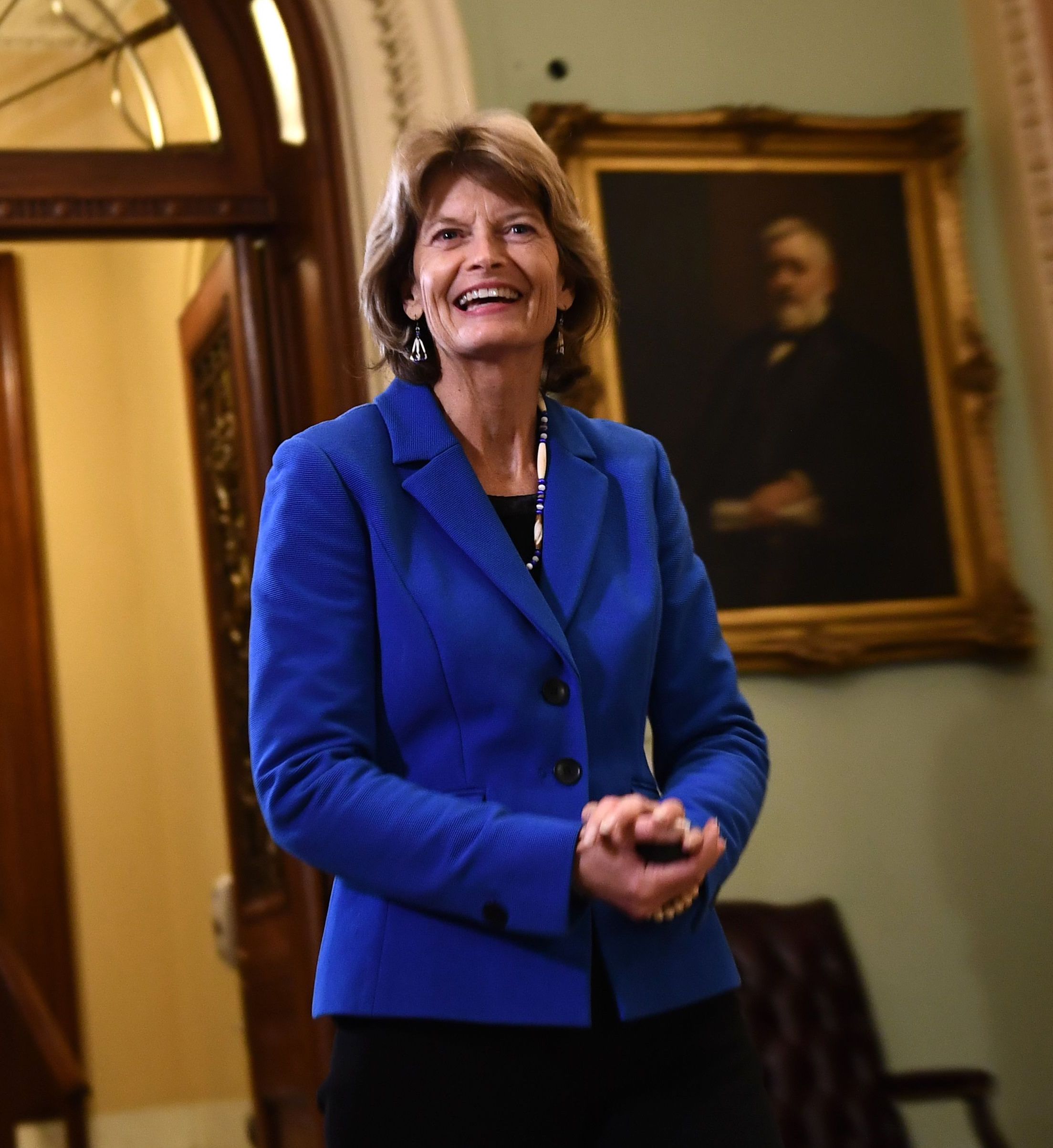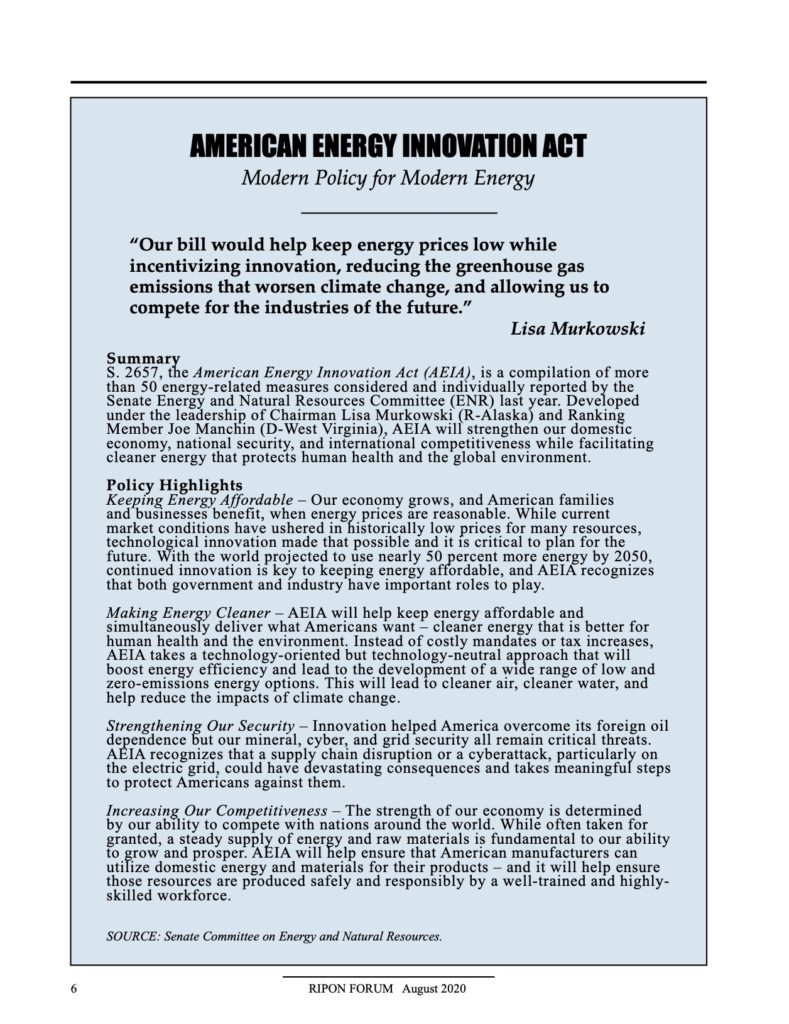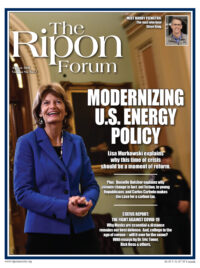
Whenever crisis hits, we have a tendency to reach for whatever is on the shelf. In the case of the coronavirus, there wasn’t much on the shelf to help. But we are now some five months into the pandemic and the economic catastrophe which followed. There are things we can do to help build a stronger future for our nation, and many relate to energy policy.
A good candidate is the American Energy Innovation Act – a bill that I wrote over the course of 2019 with Senator Joe Manchin (D-WV) and the members of the Energy and Natural Resources Committee.
Nearly everything within our bill has strong bipartisan support. In total, it comprises more than 50 individual measures sponsored in some form or another by 72 Senators. Few legislative initiatives can cite numbers like that.
The goals of our bill are simple: to make energy cleaner, to make clean energy cheaper, to strengthen our security, and to increase American competitiveness. Individual provisions would: improve the efficiency of schools and data centers; promote weatherization and smart buildings; and, support renewables, energy storage, carbon capture, advanced nuclear, industrial and vehicle technologies, and high-performance computing.
Amid crushing unemployment, stressed or even fractured supply chains, and international competition as intense as ever before, the U.S. energy renaissance can once again jumpstart the economy.
Our bill also tackles additional challenges facing the United States. The domestic minerals supply chain should be universally recognized as an economic and security priority, while improvements must also be made in cybersecurity, grid modernization, and workforce development.
Americans would benefit from the swift passage of legislation to modernize federal energy policy. Amid crushing unemployment, stressed or even fractured supply chains, and international competition as intense as ever before, the U.S. energy renaissance could once again jumpstart the economy. Our bill would help keep energy prices low for families and businesses while incentivizing innovation, reducing the greenhouse gas emissions that worsen climate change, and allowing us to compete for the industries of the future.
Consider the specific case of advanced nuclear energy technologies. While nuclear plants operating across the United States provide much of the grid’s backbone – or “baseload” power – it has become extremely difficult to site and construct new large-scale plants. (This is true of many major infrastructure projects, sadly, which languish in the regulatory docket and too often die in the courtroom.)
The future of nuclear energy lies in innovative reactor concepts being developed at cutting-edge startups, national laboratories, and leading American universities. These reactors are safer, scalable, and will provide clean and reliable energy for everything from military bases to remote Alaska villages. The innovation that goes into them supports highly paid, highly skilled, forward-looking jobs. It is also the best way we can compete with the Russians and Chinese, who have captured the global market for conventional nuclear projects and are prioritizing their own advanced nuclear technologies. We simply must compete and win.
We should also recognize the essential nature of energy, which is often ignored or taken for granted. Energy is, all at once, a finished product, a feedstock, a raw material, an input, an output, a value-added good, a natural resource, a tradable commodity, and a precious asset. It is critical infrastructure and emergency reserves, financial collateral and competitive exports, and a valued source of high-paying and high-skilled jobs. I often boil it down by simply reiterating that “energy is good.”
Stepping back from the current crisis, our bill represents a decade-long effort to modernize the legal frameworks surrounding U.S. energy policy. The truth is that a lot has happened in the last 12 years, and our nation’s energy policies don’t reflect our current reality.
The last major energy bill became law in 2007 – when George W. Bush was President, and just a few months after the very first iPhone was released. At the time, we were heavily dependent on foreign oil and gas and the cost of many renewables was prohibitively high.
Our bill would help keep energy prices low while incentivizing innovation, reducing the greenhouse gas emissions that worsen climate change, and allowing us to compete for the industries of the future.
Since then, we’ve experienced a shale revolution that turned America into an energy superpower and net exporter for the first time in generations. That renaissance began with the true grit of American wildcatters employing American technologies on American oil and gas fields. It will not end with the pandemic, but nor will hydrocarbons be its final chapter. The costs of renewables have declined dramatically, and new technologies, such as energy storage and carbon capture, are emerging. Our policies have not kept pace with reality in a way that allows us to take full advantage of those technologies or to address looming challenges.
Horse-and-buggy statutes that in some cases prescribe the activities of government agencies that no longer exist must be revisited. Nobody would wait 12 years to refresh a webpage. American energy, which occupies a central position in the U.S. economy, also deserves a refresh.
Our energy bill made it through the committee process and to the Senate floor at the end of February, just as the pandemic took hold. Our bill is supported by more than 200 organizations, ranging from the U.S. Chamber of Commerce to The Nature Conservancy.
Physicists define energy as “the capacity to do work,” and we desperately need to get America back to work. Enacting our bipartisan energy bill can help – both now and well into what would be a decidedly brighter future.
Lisa Murkowski is the Senior U.S. Senator from the State of Alaska. She serves as Chairman of the Committee on Energy and Natural Resources.





